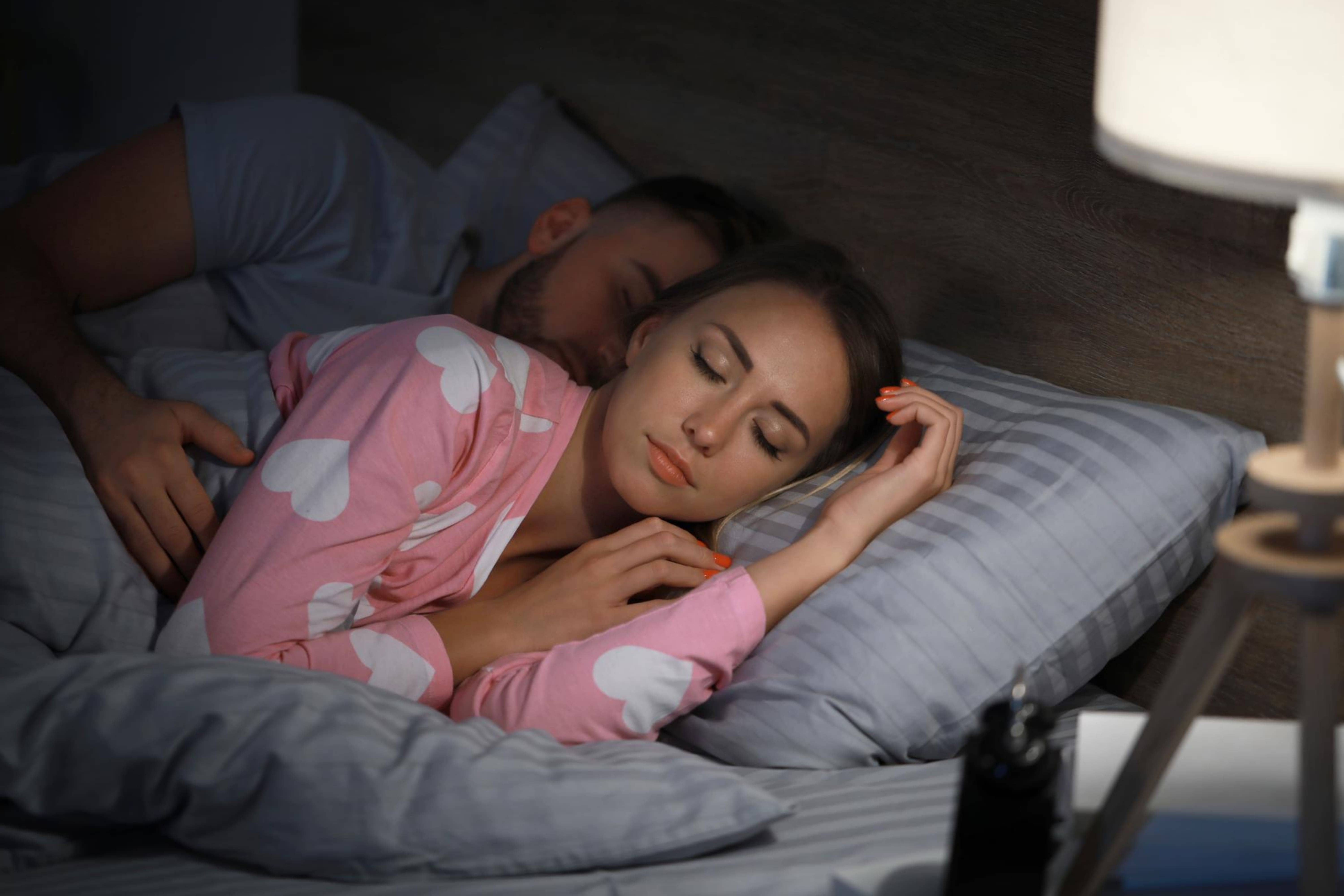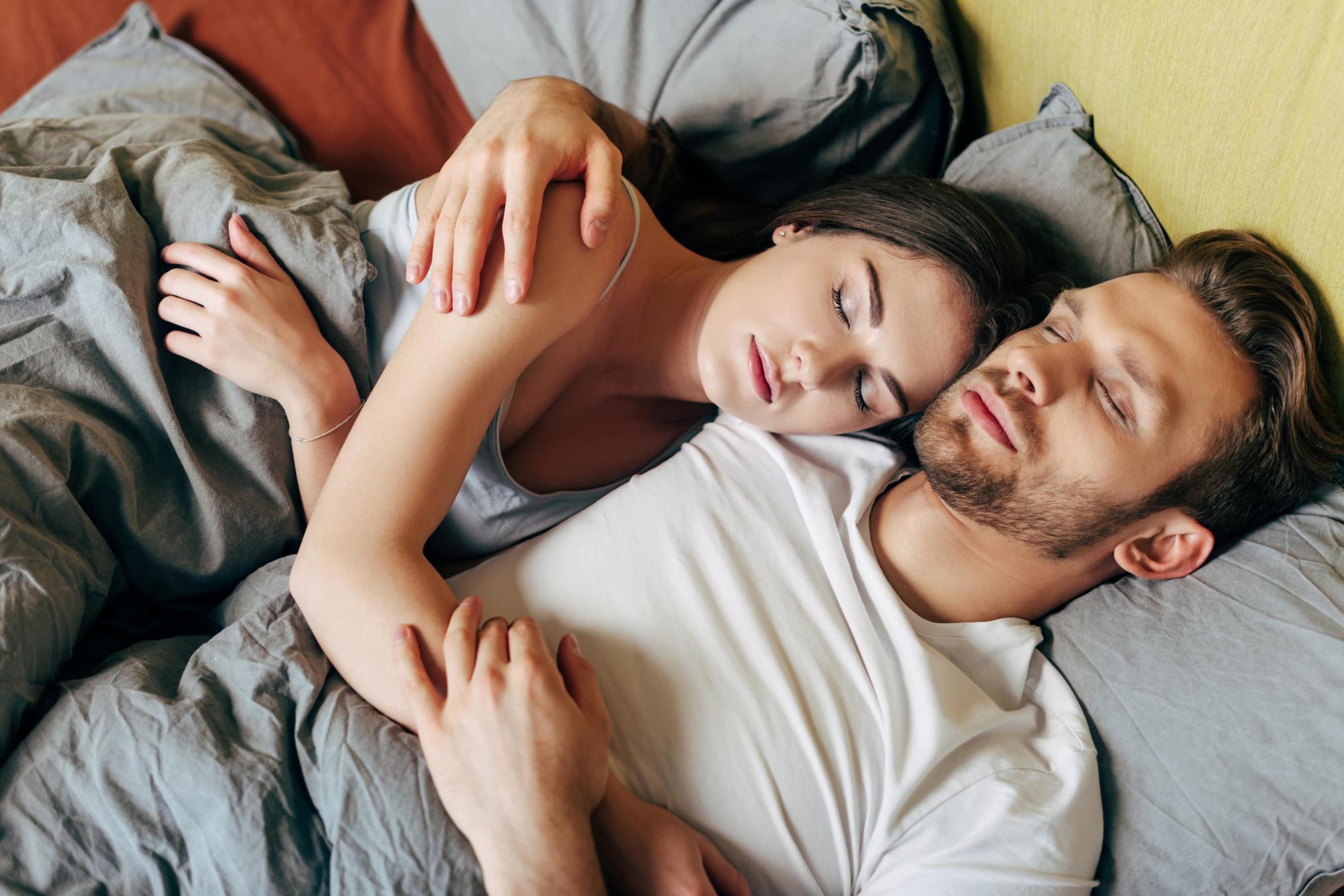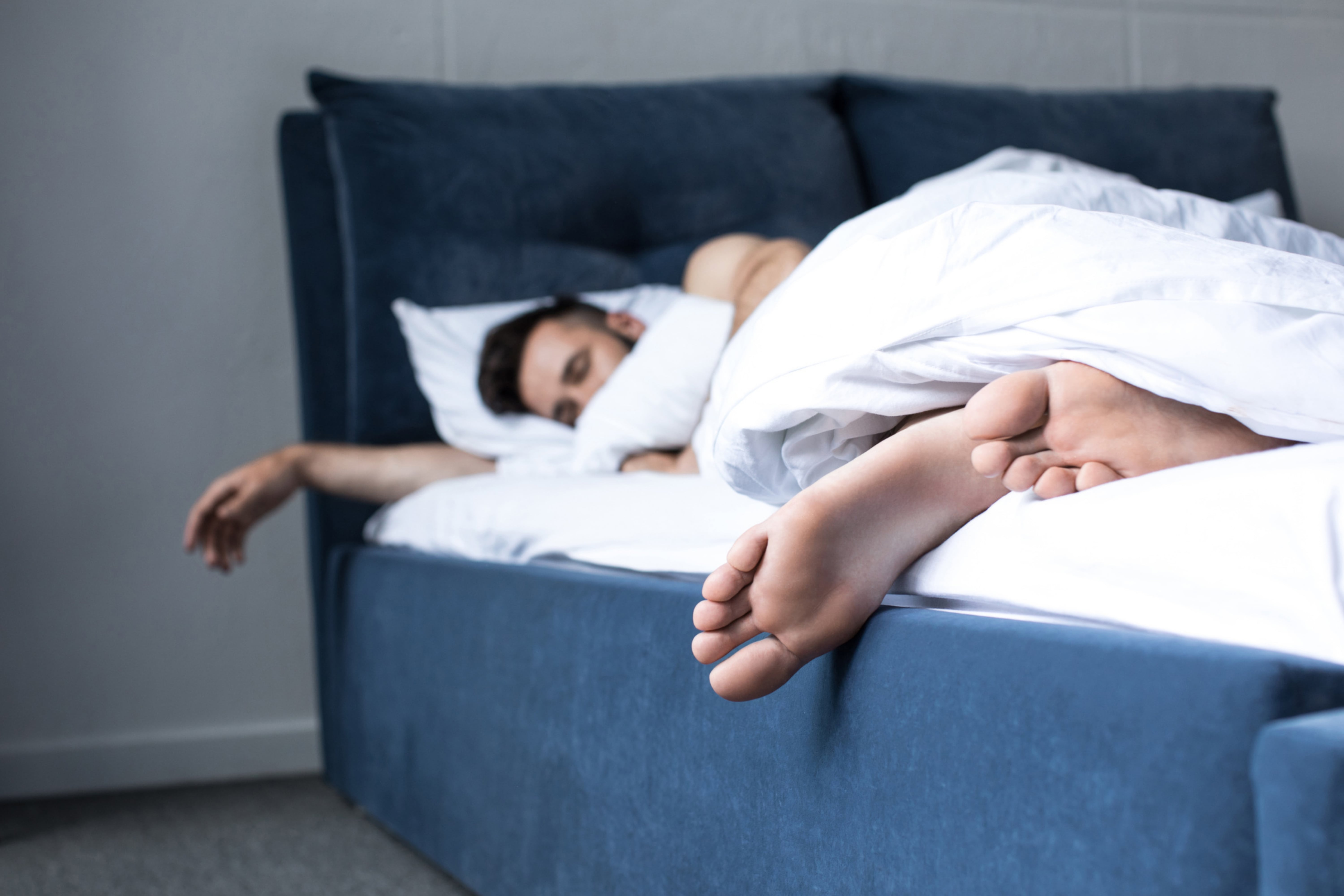We’ve all felt it at some point: that inexplicable sense of drowsiness that engulfs us when we’re around someone we deeply care about. It might seem perplexing, especially when being with that person energizes your spirit. So, why does the physical body seem to tell a different story? Well, there’s a fascinating cocktail of psychological, physiological, and emotional factors at play here.
In this dive into the depths of human behavior, we’ll unravel 20 intriguing explanations behind this phenomenon.
Though we might associate love with heart-pounding excitement and butterflies in the stomach, the flip side of this coin is a feeling of unparalleled comfort and security. And it’s in this realm of comfort that our bodies may sometimes interpret relaxation as a cue for sleepiness.
Ready to uncover the mysteries of this quirky reaction?
Let’s dive in!
1. Oxytocin Overload
The initial blush of love or the deep connection in long-term relationships can release oxytocin, often referred to as the “love hormone.” This hormone plays a significant role in bonding, and interestingly, it has a relaxing effect.
- Oxytocin doesn’t just promote bonding but also induces relaxation and feelings of contentment, which can lead to drowsiness. This study delves into how oxytocin can promote sleep.
- Feeling secure and close to a loved one might boost the release of this hormone. As it floods our system, it can pave the way for that sneaky, sleepy sensation.
- It’s not just emotional but physical closeness that can induce this effect. Touch, hugging, or cuddling can ramp up oxytocin levels, leading to the same outcome.
2. Psychological Comfort
Being around a loved one can be the equivalent of being in our most comfortable pajamas – mentally speaking.
- There’s an inherent relief in being with someone who accepts you wholeheartedly. This psychological comfort can inadvertently signal your brain that it’s time to rest, as found in this research.
- Sharing, laughing, and talking can act as emotional catharsis, which drains psychological stress. This could lead to the brain prompting the body to rest and rejuvenate.
- In their presence, the guard we sometimes hold up against the world drops, which can be surprisingly exhausting.
3. Energy Re-alignment
When two people share a deep connection, there’s an unspoken energy alignment that transpires between them.
- Each person naturally tunes into the other’s energy frequency. If one is calm and relaxed, the other might sync up and feel a similar sense of tranquility, as suggested by this research.
- Subtle cues like body language, breathing patterns, and even heartbeats can synchronize. This collective relaxation can sometimes lead both individuals to feel sleepy.
- Beyond the conscious realm, this synchronization could be a deeply evolutionary trait where aligning energy patterns signaled safety and security.
Comparison Table: Oxytocin vs. Psychological Comfort vs. Energy Re-alignment
[table id=393 /]
4. Reduced Alertness
It’s no surprise that when we feel safe, our brains no longer operate in hyper-alert mode. This change in brain function can prompt feelings of sleepiness.
- The brain’s alert system, often called the ‘fight or flight’ response, tends to relax when we’re with someone trustworthy. The downscaling of this system can be linked to drowsiness, as explored in this research.
- The absence of perceived threats or stressors around a loved one allows our brain to take a mini-vacation of sorts.
- This isn’t just a mental phenomenon; it’s physically reflected in reduced cortisol (stress hormone) levels, leading to enhanced relaxation and potential sleepiness.
5. Shared Activities
Often, the activities shared between loved ones can be inherently relaxing, setting the stage for shared drowsiness.
- Watching movies, reading, or simply listening to music together can be calming activities. These passive engagements reduce overall alertness and can induce sleepiness.
- Shared meals, especially ones that are hearty, can lead to the well-known “food coma.” This post-meal sluggishness, backed by research, is due to the body’s focus on digestion.
- Engaging in deep, meaningful conversations can be mentally taxing, leading to a sense of exhaustion and subsequent drowsiness.

6. Heartbeat Synchronization
One of the profound ways that two people in love connect is through the rhythm of their hearts. Believe it or not, the heartbeats of couples can synchronize under the right conditions.
- Being in close proximity, like cuddling, can lead to heartbeat synchronization. This study showed that when couples are together, their heart rates and respiratory patterns often align.
- The synced heartbeats might lead to a collective feeling of calmness and relaxation, potentially making both partners feel sleepy.
- Listening to the heartbeat of a loved one can have a soothing effect, almost akin to white noise, which can promote drowsiness.
7. Emotional Exhaustion
Delving deep into emotional exchanges and connecting on a raw, personal level can be draining.
- Sharing vulnerabilities, past traumas, and hopes for the future is emotionally taxing. After such intense emotional exchanges, the body and mind may feel the need to retreat and rejuvenate, leading to sleepiness.
- Emotional catharsis, like crying or profound revelations, can leave one feeling spent. This research highlights the exhaustive effect of emotional processing.
- However, it’s worth noting that this exhaustion is often cathartic and healing, making the subsequent sleep deeply rejuvenating.

8. Breathing Patterns
It’s not just heartbeats that find a rhythm. Breathing patterns can align as well, promoting mutual relaxation and drowsiness.
- Slow, synchronized breathing can induce a meditative state, leading to a feeling of deep relaxation. As this research indicates, synchronized breathing can influence feelings of connectedness and calmness.
- Breathing in unison can enhance feelings of intimacy and unity. Over time, this profound sense of connection can lead to mutual drowsiness.
- Deep, synchronized breaths can also increase oxygen flow and decrease blood pressure, further promoting feelings of relaxation.
9. Mirror Neurons
Our brains have a unique system that mirrors the emotions and actions of those we’re close to, influencing our own state of being.
- Mirror neurons activate both when we perform an action and when we see someone else perform the same action. This study delves into how these neurons contribute to empathy and understanding.
- When a loved one feels relaxed and sleepy, our mirror neurons may pick up on these signals, making us feel the same way.
- It’s an unconscious process that deepens the bond between two individuals, ensuring they are attuned to each other’s emotional states.
10. Trust and Vulnerability
Finally, trust plays an indispensable role in how safe and relaxed we feel around someone, impacting our sleep readiness.
- When we trust someone deeply, we let our guard down, making us more vulnerable. This research on trust and physiological responses showcases that trust can lower defenses and promote relaxation.
- In the presence of a trusted loved one, we might subconsciously feel it’s safe to close our eyes and rest, knowing they’ll watch over us.
- This sense of security and vulnerability combined can induce a profound state of relaxation, leading to sleepiness.
11. Shared Dreams and Aspirations
Discussing future plans, dreams, and aspirations with a loved one can lead to an overwhelming sense of comfort and hope.
- These conversations can be both invigorating and exhausting. The emotional weight of laying bare your deepest desires and aligning them with someone else’s can be draining. This research sheds light on the emotional toll of deep conversations.
- The sheer joy and vulnerability in sharing can lead to a mental wind-down, culminating in feelings of drowsiness.
- It’s akin to the calm after a storm, where the storm represents the flurry of thoughts, hopes, and dreams discussed.

12. Pheromone Play
It’s not just emotional or psychological factors; sometimes, it’s pure biology. Pheromones are chemical messengers released by humans which can influence our behavior and emotions.
- When in close proximity to a loved one, we might be influenced by their pheromones. Certain pheromones can induce a sense of calmness, as highlighted by this study.
- Pheromones might play a role in mutual feelings of attraction, comfort, and subsequent relaxation.
- The science of pheromones is still evolving, but it’s intriguing to consider that our very chemistry might make us sleepy around someone we adore.
13. Shared Routines
Often, couples or close friends develop shared routines, and these routines can inherently promote relaxation.
- From a shared cup of chamomile tea before bed to a routine of evening walks, such rituals can induce feelings of drowsiness.
- Over time, the body’s internal clock or circadian rhythm might adjust to these shared routines. This research on circadian rhythms showcases how they can be influenced by external factors.
- It’s not just the activities but the predictability of routines that provides a comforting signal to the body that it’s time to wind down.

14. The Lull of Voices
The very sound of a loved one’s voice can be a soothing balm, lulling us into a state of drowsiness.
- Their tone, pitch, and rhythm can become a source of auditory comfort. This study indicates how familiar voices can induce relaxation.
- Whether it’s a deep conversation or a simple mundane chat, the resonance of their voice can become a calming backdrop.
- This phenomenon isn’t just restricted to romantic partners; think about the lullabies sung by mothers or the bedtime stories narrated by fathers, both designed to induce sleep.
15. Safety in Numbers
Historically, there’s safety in numbers, and this evolutionary concept might still play a role in our modern reactions.
- Being around a trusted individual might trigger a primitive response in our brains that it’s safe to rest since there’s someone to watch over us, as supported by this research.
- This shared sense of safety might mean both parties feel equally protected and hence equally sleepy.
- It’s a beautiful testament to the profound trust and unity two people can share, transcending the spoken word.
16. Comfort in Touch
Physical touch, a fundamental love language, has profound effects on our psyche and physiology.
- Simply holding hands or cuddling releases oxytocin, often dubbed the “love hormone” or “cuddle hormone.” This study reveals how oxytocin fosters feelings of trust, bonding, and relaxation.
- The warmth and comfort of a loved one’s touch can act as a gentle sedative, easing away the stresses of the day.
- It’s no wonder that many people find sleep more accessible when they’re enveloped in the embrace of someone they love, allowing them to drift into slumber effortlessly.

17. Emotional Overflow
Our emotions are like rivers, constantly flowing, ebbing, and sometimes overflowing.
- Profound feelings of love, gratitude, and contentment can lead to an emotional overflow. This can be both invigorating and draining, as highlighted by this research.
- Just as tears are a way of releasing emotional overflow, sleepiness can be the body’s way of processing and integrating these intense emotions.
- This is especially prevalent after shared moments of joy, sadness, or deep connection, where the emotional aftermath can lead to a desire for rest and introspection.
18. Harmonizing Energies
When two people deeply connect, it’s as if their energies intertwine, seeking equilibrium.
- Spending quality time with a loved one can lead to the harmonizing of personal energies. This study delves deep into the concept of energy synchronization among close individuals.
- This equilibrium, a balance of energies, can create a peaceful atmosphere conducive to relaxation and, subsequently, drowsiness.
- It’s akin to two musical notes harmonizing perfectly to create a serene, calming melody.
19. Shared Experiences and Memories
Revisiting shared memories or planning shared futures can lead to an overwhelming sense of fulfillment.
- Discussing past adventures or dreaming about future ones can be both exhilarating and tiring. Immersing oneself in memories or future plans can lead to mental fatigue, as indicated by this research.
- This mental journey, traveling through time together, can be a fulfilling yet tiring endeavor, leading to feelings of sleepiness.
- It emphasizes the importance and weight of shared experiences in shaping the dynamics of a relationship.
20. A Dance of Hormones
Finally, beyond the realms of emotions and connection, the body’s hormones play a pivotal role in our states of alertness and drowsiness.
- Dopamine, serotonin, and melatonin are some of the key players influencing our mood and sleep patterns. Being around a loved one can affect the release and balance of these hormones, as this research elaborates.
- Feelings of love and contentment can boost serotonin levels, which in turn can influence the production of melatonin, the sleep hormone.
- This intricate dance of hormones further underlines the fact that love is not just an emotion; it’s a physiological phenomenon that impacts us in myriad ways.
Conclusion
In this intricate dance of love, biology, and psychology, feeling sleepy around someone you adore is not just normal but also a testament to the profound connection you share with them. As you’ve learned, love’s landscape isn’t just about racing hearts and stolen glances; it’s also about those shared yawns, cozy snuggles, and drifting off into peaceful slumbers together.
So, the next time you find yourself fighting off a nap in your loved one’s presence, smile and remember: it’s all part of the beautiful, complex journey of love.
[wp-faq-schema title=”Frequently Asked Questions”]
